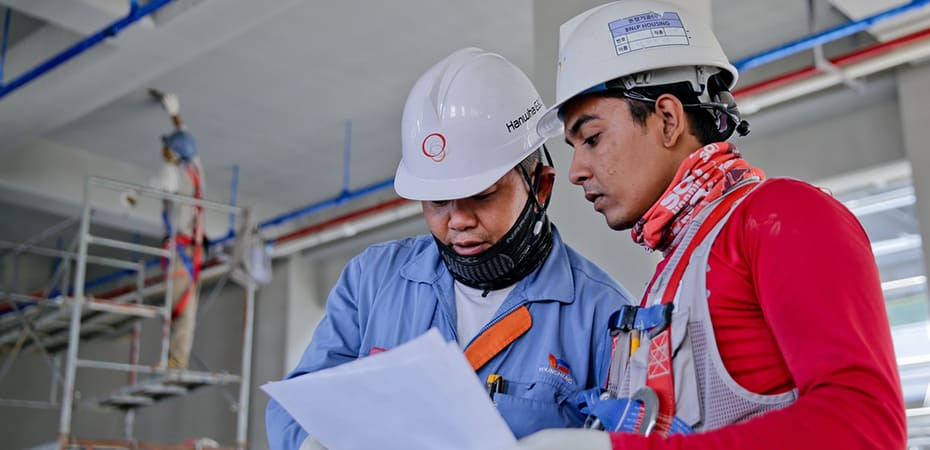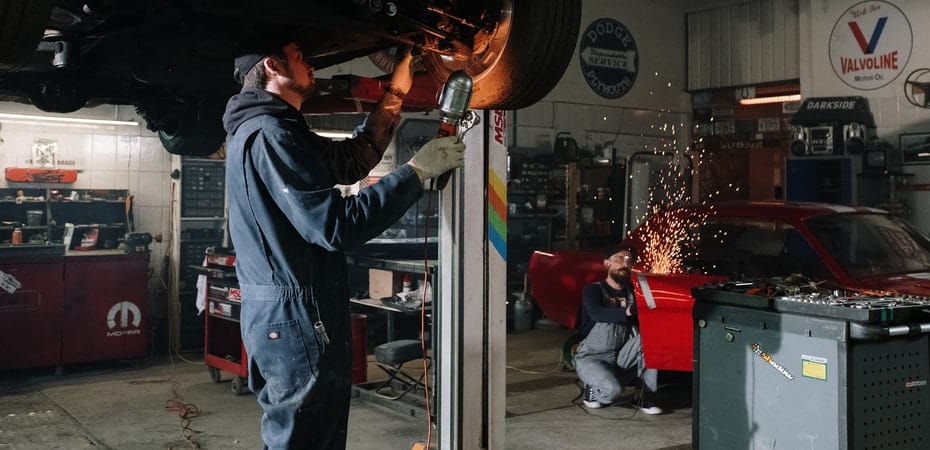Most people believe that it is impossible to get a good-paying job without a formal education, but there are many options for jobs that pay $50K a year without a degree. Thanks to the advancement of technology creating new avenues for expertise outside of a traditional educational route, nothing is impossible.
If you have been searching for jobs that pay $50K a year without a degree, you are reading the right article. See our detailed guide below on the best jobs that don’t require a degree and steps on how to earn $50K without a degree.
How Common are $50K Jobs That Don’t Require a Degree?
Jobs that do not require a college degree and pay an annual average salary of $50K are very common. You can find a wide range of jobs in various sectors such as healthcare, education, manufacturing, and information technology.
These sectors have started to look for people who have the necessary skills rather than the proper degree. Some companies even provide paid apprenticeship-style training programs for job applicants to learn skills and company practices.
How to Earn $50K Without a Degree: 3 Alternative Paths to Your Dream Job
With the alternative education options listed below, you can get your dream job without having a four-year degree and earn an annual salary of $50,000 or more.
Apprenticeships
Apprenticeships are a means to educate new professionals through on-the-job training and, in some instances, academic study. Apprenticeship programs combine elements of paid work and education to provide industry-recognized credentials.
Suppose you want to earn nationally recognized qualifications in various fields. You can enroll in an industry-recognized apprenticeship program (IRAP) or a registered apprenticeship program (RAP) to learn skills that could land you a job with an annual salary of $50K.
Coding Bootcamps
A coding bootcamp can help you land a job that pays an annual salary of $50K. Coding bootcamps provide students with the necessary skills to begin a career in the technology field.
Many career paths in coding can lead to salaries in excess of $50K per year, such as web development, software engineering, data analytics, and game development.
Technical Education
Technical education provides vocational training and technical skills that you can use to build a career that earns an annual salary of $50K in a wide range of sectors. The training could result in a diploma or certification in a particular field of study.
These programs are offered by technical and vocational schools as well as two- to four-year colleges and universities. Electricians, broadcasters, and property managers can earn relevant certificates through technical education.
Best Jobs That Don’t Require a Degree and Pay $50K a Year: At a Glance
| Job |
Average Salary |
Top 10% |
Minimum Job Requirements |
| Property Manager |
$59,660 |
$134,570+ |
High School Diploma, License, Customer Service Skills |
| Flight Attendant |
$59,050 |
$84,790+ |
High School Diploma, Certification by the FAA, Communication Skills |
| Electrician |
$56,900 |
$98,720+ |
High School Diploma, Apprenticeship, Customer Service Skills |
| Hotel Manager |
$56,670 |
$108,060+ |
High School Diploma, Certification, Business Skills |
| Food Service Manager |
$56,590 |
$94,770+ |
High School Diploma, Internship, Postsecondary Education |
| Plumber |
$56,330 |
$98,990+ |
Apprenticeship, Vocational Technical School, License |
| Chef |
$53,380 |
$90,790+ |
High School Diploma, Apprenticeship, Culinary School |
| Firefighter |
$52,500 |
$93,790+ |
High School Diploma, Training in Medical Emergency Services, Physical Stamina |
| Insurance Sales Agent |
$52,180 |
$127,840+ |
High School Diploma, State License, Communication Skills |
| Heating, Air Conditioning, and Refrigeration Mechanic |
$50,590 |
$80,820+ |
Postsecondary Education, Apprenticeship, License |
Best Jobs That Don’t Require a Degree and Pay $50K a Year: A Closer Look
Below you will find a list of the best jobs that do not require a degree, and offer an average wage of at least $50K.
Property Manager
- Average Salary: $59,660
- 90th Percentile Salary: $134,570
- Projected Job Growth: 3%
Property managers are responsible for various aspects of residential, commercial, and industrial properties. Property managers ensure that a property is well-maintained, attractive, runs smoothly, and retains its market value.
Flight Attendant
- Average Salary: $59,050
- 90th Percentile Salary: $84,790
- Projected Job Growth: 30%
Flight attendants respond to emergencies during flights to ensure that airline passengers’ safety and comfort are not at risk. Additionally, flight attendants strive to make passengers’ journeys as comfortable and stress-free as possible. They don’t need a degree to get started in the field, but they have to go through training before the Federal Aviation Administration certifies them.
Electrician
- Average Salary: $56,900
- 90th Percentile Salary: $98,720
- Projected Job Growth: 9%
An electrician is a skilled worker who completes electrical work such as rewiring equipment or fixtures, examining electrical components for safety, installing wiring and lighting, and regularly resolving electrical issues. They often work in the construction industry. Becoming an electrician typically requires studying at a technical school or completing an apprenticeship program.
Hotel Manager
- Average Salary: $56,670
- 90th Percentile Salary: $108,060
- Projected Job Growth: 9%
A hotel manager or lodging manager oversees the daily operations of the hotel while meeting specific company standards. The manager guarantees that guests have a positive experience while staying at the hotel. Hotel managers can get hired based on a high school diploma and work experience, a certificate in hotel management, or an associate degree.
Food Service Manager
- Average Salary: $56,590
- 90th Percentile Salary: $94,770
- Projected Job Growth: 15%
Food service managers are in charge of running restaurants or other establishments that prepare and serve food, such as hotel food service. They supervise employees, satisfy customer demands, and maintain the business’s reputation and success. Prior work experience as a waiter or cook as well as a high school diploma is required.
Plumber
- Average Salary: $56,330
- 90th Percentile Salary: $98,990
- Projected Job Growth: 5%
Plumbers are trained workers who are qualified to install and repair water and natural gas pipelines. Plumbers frequently install and repair water fixtures and appliances, such as toilets, sinks and faucets, washing machines, water heaters, and dishwashers. Plumbers must complete an apprenticeship and may require an industry license to perform their job.
Chef
- Average Salary: $53,380
- 90th Percentile Salary: $90,790
- Projected Job Growth: 25%
Chefs are in charge of the daily meal preparation in restaurants and other establishments that offer food. They supervise the kitchen workforce and deal with any food-related issues. They create menus, ensure meal quality, and hire, train, and oversee cooks and food prep workers. Chefs typically only need a high school diploma, though many study at a culinary school.
Firefighter
- Average Salary: $52,500
- 90th Percentile Salary: $93,790
- Projected Job Growth: 8%
Firefighters respond to medical and fire emergencies such as house fires and car accidents. Most firefighters are certified as emergency medical technicians, and those interested in pursuing a career in this profession must finish a training and certification program. To become a firefighter, you must have a high school diploma and undergo on-the-job training.
Insurance Sales Agent
- Average Salary: $52,180
- 90th Percentile Salary: $127,840
- Projected Job Growth: 7%
Insurance sales agents operate in the insurance sector and can either work in an insurance company or work independently. Within the healthcare industry, they process insurance claims, manage client records and provide detailed reports. To become an insurance sales agent, you need a high school diploma.
Heating, Air Conditioning, and Refrigeration Mechanic (HVACR)
- Average Salary: $50,590
- 90th Percentile Salary: $80,820
- Projected Job Growth: 5%
HVACR technicians, work on the heating, ventilation, cooling, and refrigeration systems that regulate the temperature and air quality in buildings. They install, maintain, and repair HVACR systems, electrical components, and wiring, as well as replace worn or damaged parts. They must complete an apprenticeship and, in some cases, become licensed.
How to Earn $50K Without a Degree
If you get certifications or go to a trade school or technical school, you can qualify for a wide range of jobs that pay a median salary of $50K. Most employers will look past the lack of college education if you partake in additional training and develop valuable skills relevant to your work experience, such as critical thinking skills, personal skills, and teamwork skills.
Jobs That Pay $50K a Year Without a Degree FAQ
What is the minimum education requirement for jobs that pay $50K? A high school diploma or its equivalent is the minimum educational requirement for jobs that pay median annual wages of $50K. Some companies may require you to complete on-the-job training or an apprenticeship program.
Is it easy to get a good job that pays well without a college degree? Yes, it is. If you possess the skills the job requires and are open to on-the-job training, you can find a good-paying job. For many jobs, having work experience in the field is better than having a college education.
What are the highest paying jobs that do not require a degree? Some of the highest-paying jobs that do not require a college degree include property managers, water transportation workers, flight attendants, food service managers, and freelance writers.
What skills do you need to have to get a job that pays $50K? Critical thinking, problem-solving skills, communication skills, interpersonal skills, management skills, and teamwork skills are some of the skills required for a job that pays a median salary of $50K.
The post Best Jobs That Pay $50K a Year Without a Degree appeared first on Job Training Hub.
]]>









